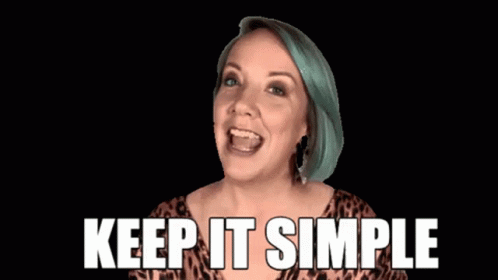The Downside of Trying to Sound Smart When You Speak
Let's talk about something that many of us have experienced at some point: trying a little too hard to sound intelligent when we speak.
You know those moments when someone goes out of their way to impress others with their vocabulary or complex explanations?
Well, it turns out that this approach can actually create more problems than it solves.
So, let's dive into why speaking to sound smart can be a real issue.
#1) It’s not a good look
Have you ever been in a conversation where someone seemed to be trying a bit too hard to sound intelligent?
Maybe they sprinkled their sentences with complicated jargon … used big words unnecessarily … or went off on tangents that left everyone feeling lost.
Their intention might have been to appear smart - but it often has the opposite effect.
#2) It disconnects you from the audience
When we over complicate our speech to sound smart, we're not actually doing ourselves any favors.
In fact, we're building barriers and obstacles that hinder effective communication.
We might think we're impressing others, but more often than not, we're causing confusion and disconnection.
3.) Your point is often missed
Think of it like constructing a maze.
Instead of creating a simple path that leads others to understanding .. we end up building a convoluted and intricate labyrinth filled with dead-ends and confusing twists and turns.
Sure, it might look impressive but it doesn't serve its purpose of guiding people towards clarity.
The truth is, effective communication … good communication … lies in simplicity and clarity.
When we use plain language and clear explanations we create a direct route to understanding.
Just like taking a straight path through a maze … using straightforward language helps others grasp our ideas effortlessly –– it fosters a genuine connection and promotes productive collaboration.
So, why do we feel the need to complicate things?
It often stems from a desire for validation or a fear of being perceived as inadequate.
We fall into the trap of imposter syndrome .. thinking that we need to prove our worth by sounding smart.
But the reality is that true intelligence shines through when we can convey complex ideas in a simple and relatable way.
By focusing on clear communication instead of trying to sound smart – we unlock a world of benefits:
Colleagues appreciate our clarity making it easier for them to contribute and collaborate.
Misunderstandings and errors are minimized - saving time and boosting overall productivity.
We alleviate the pressure of trying to impress others and can focus on genuine connections and shared goals.
So ... the next time you find yourself in a conversation … remember that speaking to sound smart often does more harm than good.
Embrace simplicity and clarity in your communication.
Be genuine, relatable, and strive for understanding.
By doing so, you'll create an environment where ideas flow freely … misunderstandings are rare … and productivity soars.
I hope you found this insight valuable and that you'll apply it to your future conversations.
Effective communication is a powerful tool that can transform your relationships and elevate your success.
Until next time!




